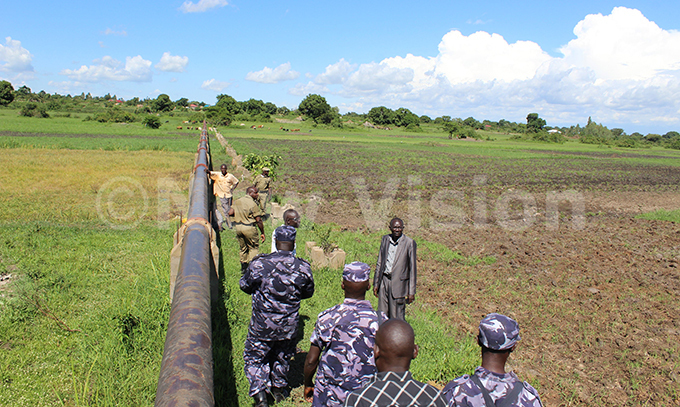RDC blames district planners, surveyors for wetland destruction
Although majority of the population fault institutions like National Environment Management Authority (NEMA), for environmental degradation, Ocailap says it is the district planers who are to blame for offering wetlands to developers.
The Soroti Resident District Commissioner (RDC) Filbert Ocailap, has piled blame on district planners, surveyors and district land boards for the continued wetland destruction in urban centers.
Although majority of the population fault institutions like National Environment Management Authority (NEMA), for environmental degradation, Ocailap says it is the district planers who are to blame for offering wetlands to developers.
Ocailap says, before one can construct a house or use any piece of land in any given urban center they have to get approved plans from the district planner.
"If these people are honest why would they approve building plans that is a wetland? They are conniving with the encroachers," Ocailap says.
He says, land is always allocated to developers by the land boards that are either compromised or are ignorant of the law and importance on wetlands.
 Environmental police officers inspecting a degraded wetland in Soroti Sub County, Soroti district.
Environmental police officers inspecting a degraded wetland in Soroti Sub County, Soroti district.
Ocailap said this on Friday, in Soroti town during, an inspection of the wetlands by officials from NEMA, Soroti district and Environmental Police.
NEMA has been involved in running battles with wetland encroachers who most time out smart it by processing land titles and getting approvals from districts technocrats.
"Land boards are the ones that allocate land to people. If they do it with caution, wetlands wouldn't be encroached on," Ocailap says.
George Micheal Egunyu, the Soroti LC5 chairman called upon all technocrats to be honest while issueing plans and be cautious of wetlands.
"We need to work together to protect wetlands. Wetland protection should be everyone's concern, because they help us all," Egunyu says.
Lawrence Odeke, however expressed discontent on how the law is being enforced.
"The well to-do are always left to destroy the wetland, but they come for us the poor. If they want this work well, the law should be applied indiscriminately," Odeke says
Francis Ogwal, the Natural Resources Manager (Biodiversity and Rangelands) at NEMA, says they are promoting protection of wetlands but are challenged by lack of community participation.
"Wetlands are not for NEMA, they are for us all. In Teso cattle have been dying and people starving for lack of water because all the wetlands were cultivated," Ogwal says.
He challenged district leaders, local and the community to work together to protect wetlands.
George Adutu, the Soroti District Environment Officer (DEO) says with protected wetlands farmers can be sure of water and pasture even during the dry spell.
"They are important for primary products such as pastures, and fish and support recreational and tourist activities. Wetlands also help reduce the impacts from flooding, maintain good water quality in rivers, recharge groundwater, store carbon, help stabilize climatic conditions and control pests," Adutu says.
He says Soroti has 68 wetlands, which have all been encroached on, but efforts are under way to reverse the situation.
This is not different to the rest of the country which is losing wetlands at rate that is high.
According to NEMA wetlands cover about 13% of Uganda's total land area. Wetlands continue to be degraded and their area across the country is below that recorded in the 90s.
In the urban areas, there is indiscriminate encroachment for settlements while in the rural areas there is much conversion to agriculture. The data shows that the national area of wetlands declined by 30 per cent between 1990 and todate